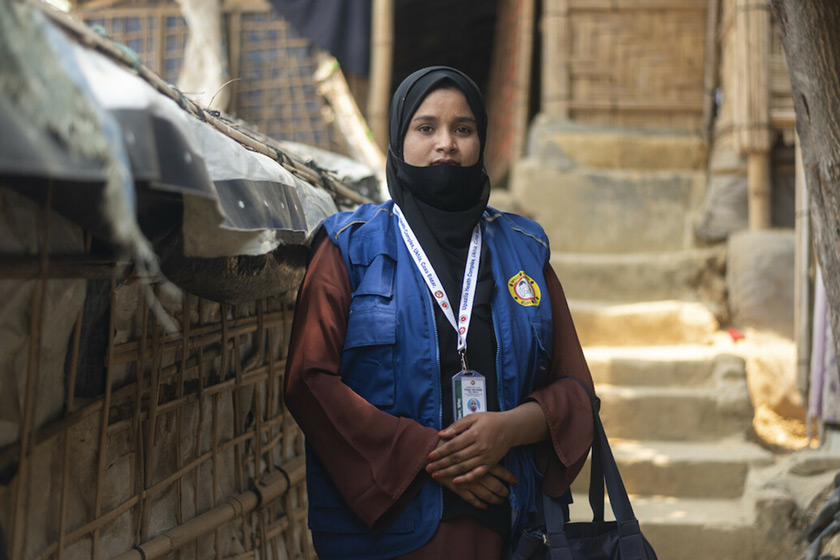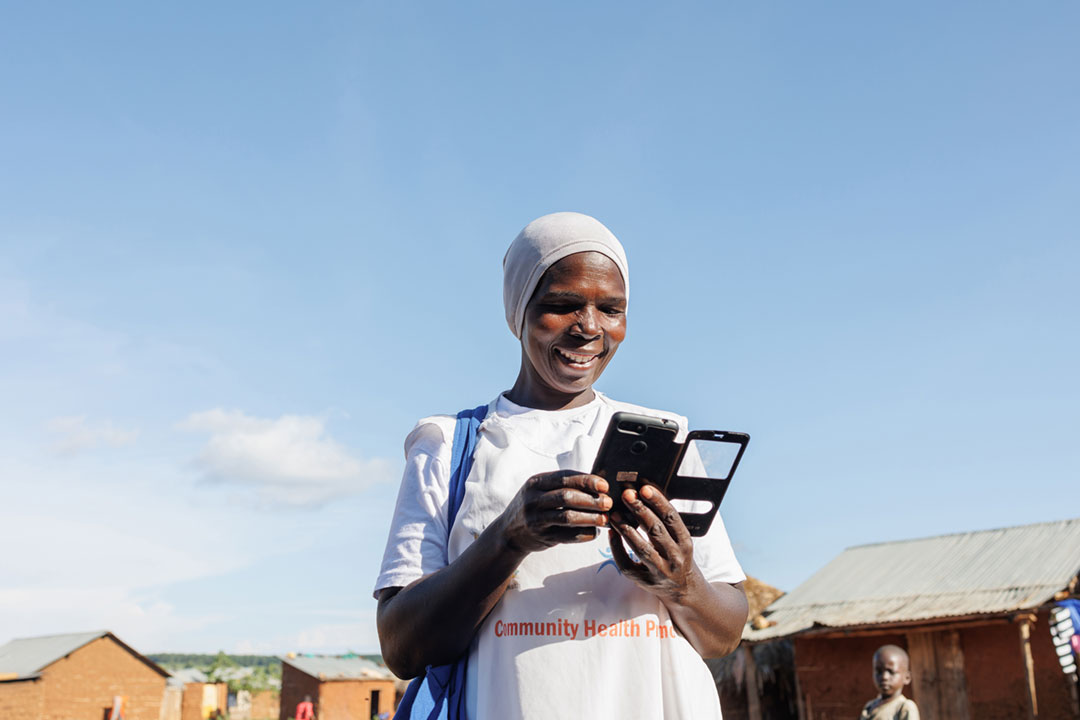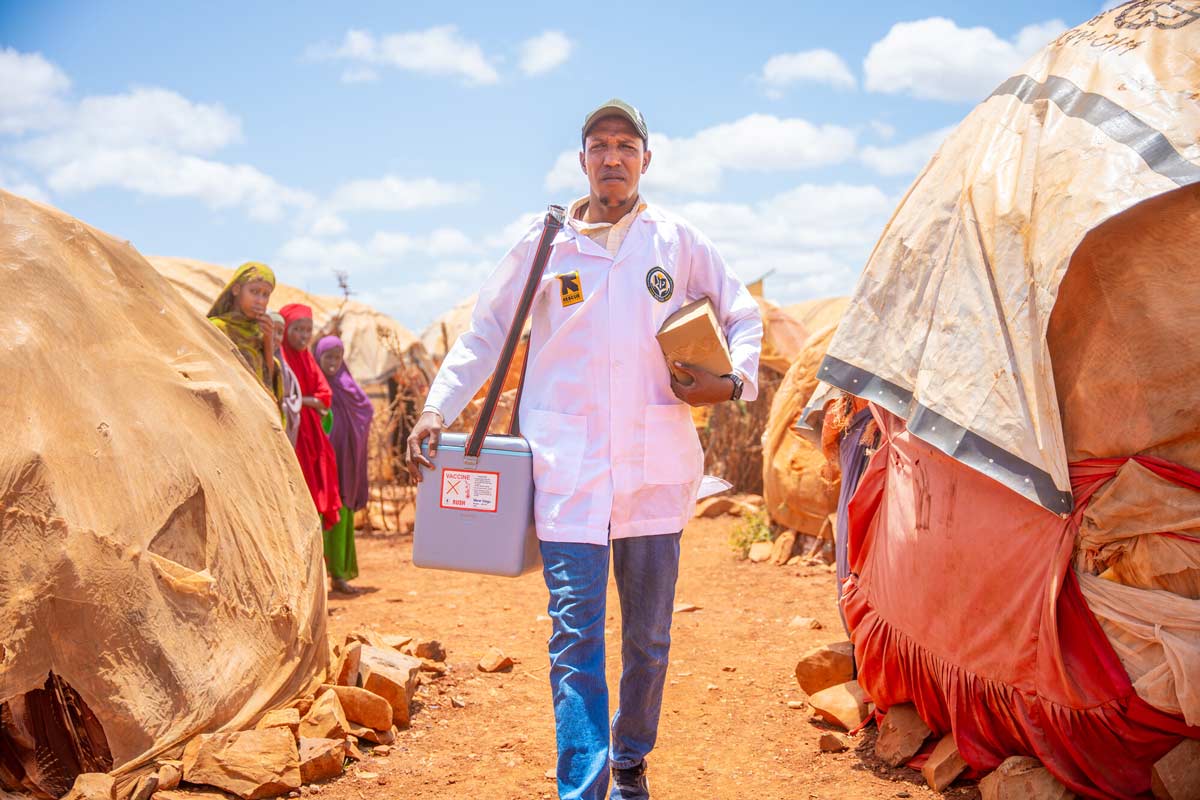EPI@50: The power of partnership
Launched in 1974, the Expanded Programme on Immunization (EPI) initiative has saved more than 150 million lives – thanks to the combined efforts of national staff, global partners and communities themselves.
- 18 June 2024
- 4 min read
- by Ian Jones

The Expanded Programme on Immunization (EPI) was inspired by the fact that, although safe and effective vaccines were available for many of the most important killer infectious diseases, they were reaching only a tiny fraction of the infants that could benefit from them. With guidance from the World Health Organization (WHO), countries were supported to establish routine vaccination programmes, now often simply known as ‘EPI programmes’.
The EPI initiative has been astonishingly successful. Globally, coverage with key vaccines has gone from single figures to more than 80%. A recent analysis suggests that vaccination has saved an estimated 154 million lives since 1974. In fact, immunisation has made the single biggest contribution to the worldwide decline in infant mortality over the past half century, an effect particularly evident in Africa, where it accounts for more than half the total drop since 1974.
Have you read?
What has underpinned this success? In advance of the Teach to Reach 10 peer learning event on 20–21 June 2024, the Geneva Learning Foundation (TGLF) invited the more than 21,000 health professionals who are participating to share their thoughts on why the EPI initiative has been able to save so many lives.
Respondents acknowledged that the efforts of international organisations, like Gavi and its partners, have been critical to establishing EPI programmes, and in many settings their financial support continues to be vitally important.
“These external resources provide the necessary infrastructure, vaccines, and operational support, enhancing the programme’s reach and effectiveness. Without this help, achieving the current levels of immunisation coverage and disease control would be much more challenging.”
- Mohammad Wajid Ali
Public health specialist (MPH), South Khyber Pakhtunkhuwa, Pakistan
Other respondents emphasised that EPI’s success relies on thousands of programme staff who strive continuously to ensure that vaccines reach those in need.
“The success of EPI is also largely attributable to the daily work of health workers who administer vaccines, follow vaccination schedules, raise awareness and monitor for adverse effects. Their commitment and dedication are essential to ensuring that vaccination targets are achieved.”
- Anonymous
Community health worker, Ministry of Health, Democratic Republic of the Congo
In addition, some noted how EPI programmes needed to be seen as being in partnership with communities. Ensuring vaccines are available in facilities and at outreach posts is one key challenge, but there also needs to be active support for vaccination in communities. Consulting with and listening to communities is key to success.
“One memorable instance that stands out is when our team actively integrated beneficiary voices into our programme design, significantly improving our effectiveness and approach… To better understand the needs and challenges of the beneficiaries, we decided to hold a series of focus group discussions with community members. From these discussions, we learned that the community had specific concerns about the accessibility and cultural appropriateness of existing health services. For example, many women felt uncomfortable seeking help from male health workers, and there were misconceptions about certain medical procedures.
These insights were crucial in reshaping our programme. The active participation of the community members and the openness of our community health workers (CHWs) to listen and learn played a key role. Incorporating the feedback, we trained more female CHWs and adapted our health education materials to be more culturally sensitive. This not only increased the utilisation of our services, but also built stronger trust within the community… This experience taught us the importance of listening to and learning from those we aim to serve, leading to better outcomes and more sustainable community health initiatives.”
- Tidah Simuata
International consultant
Gavi and other global partners continue to make vital contributions to enable countries to introduce new vaccines and strengthen their immunisation programmes. Following the approval by the Gavi Board of the next Gavi strategy, Gavi 6.0, due to run from 2026 to 2030, Gavi will be seeking a replenishment of its funding. With countries facing multiple challenges, including economic downturns, conflict and instability, and the growing impacts of climate change, there remains a great need for continuing global support for immunisation.
At the same time, those working in EPI programmes are facing the challenge of delivering vaccines to infants and, increasingly, those in older age groups. Their efforts, working closely with their local communities, will be essential if the great successes of the EPI initiative can be sustained and expanded to the people currently missing out. Conceived globally, the EPI initiative is ultimately dependent on the combined efforts of those working at all levels who are dedicated to realising the life-saving potential of vaccines.
- Register here to join the EPI 50th anniversary celebration at Teach to Reach 10 in English on 20 June 2024 and in French on 21 June 2024.
- Other topics to be discussed at Teach to Reach 10 will include malaria prevention, climate change and health, and neglected tropical diseases. Request your invitation at https://www.learning.foundation/teachtoreach
Note: Contributor quotes in this article are their own and do not necessarily represent their employers.









